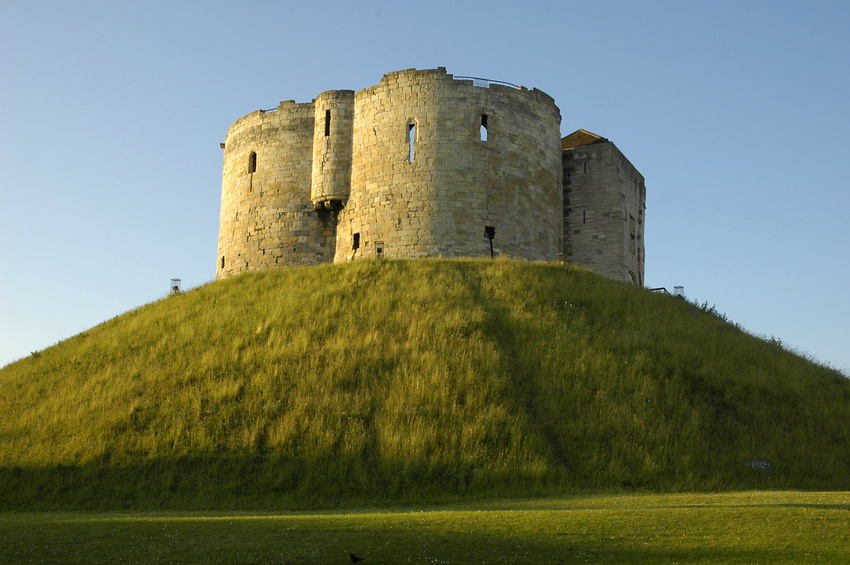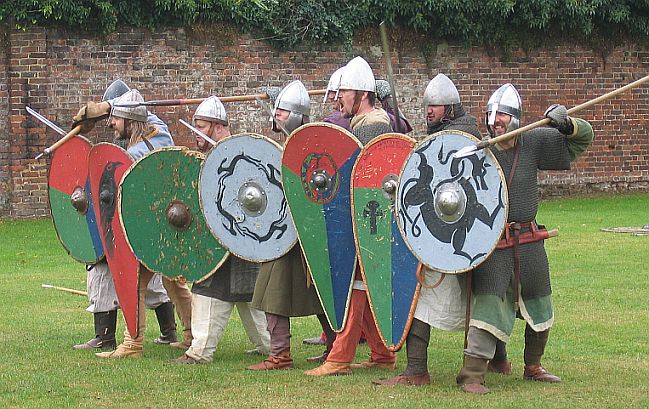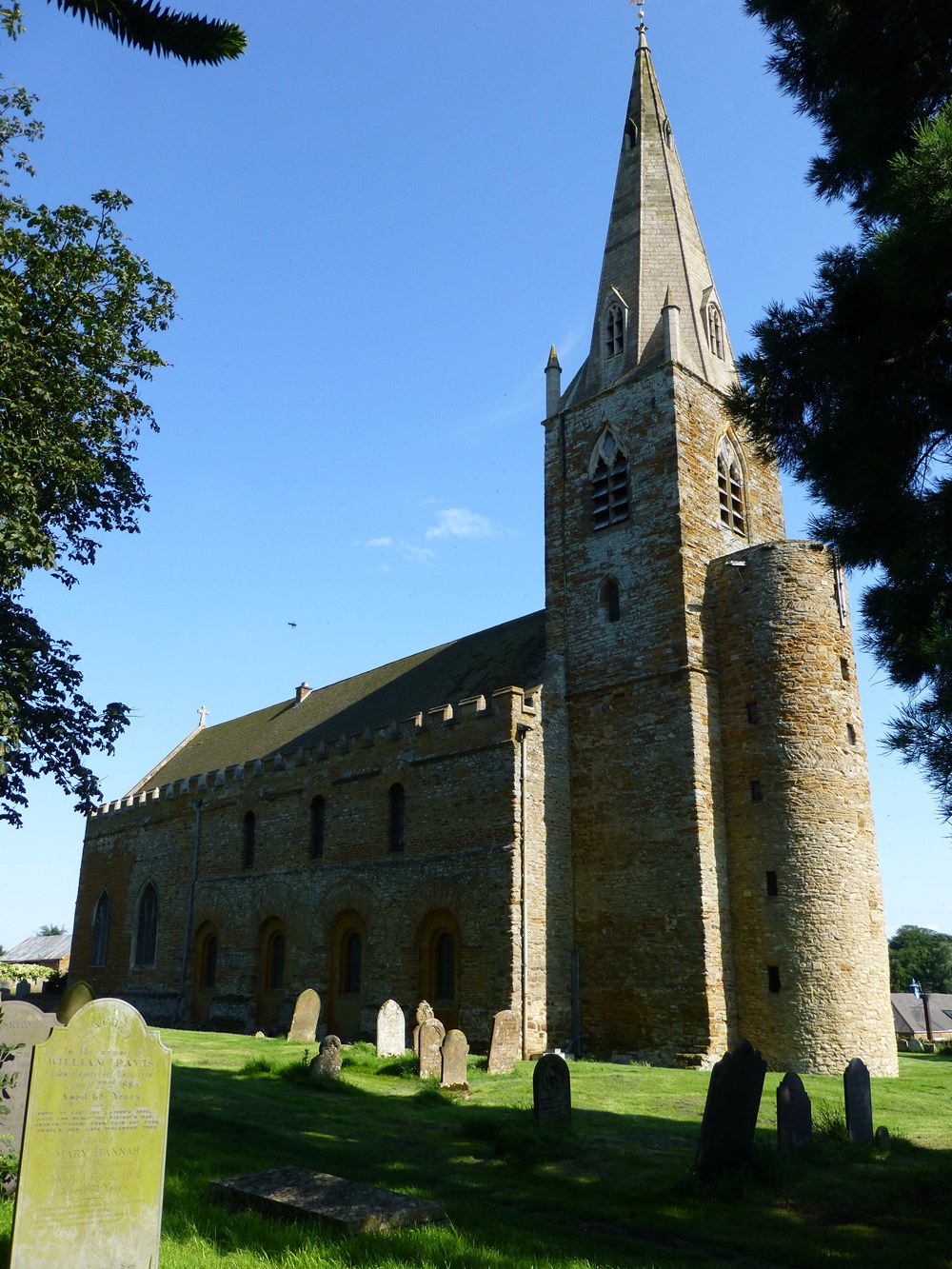| Back to Back Issues Page |
 |
|
Essentially England News - The Day Everything Changed October 07, 2016 |
The Day Everything ChangedWelcome to Essentially England's October Newsletter. We had an excellent summer and even now it's only just starting to feel like autumn is finally here. It's still 90% green and only the misty mornings and slight chill give the game away. On the last day of September, we were out on a long walk in the sunshine in just t-shirts and loved every minute of it! I want to talk about all our meanderings in Cornwall, but I'm going to leave that for next month because…you've guessed it… this October there can only be one topic! The year is 1066, and talking about that time 950 years ago means wandering off into Sussex and Yorkshire for a while. I promise much Cornwall for next month and a fierce battle for this newsletter!
My fascination with Anglo-Saxon England and the Norman Conquest goes back a very long way. My first novel - and I use that term very loosely, I was twelve at the time - was a conquest story and I haven't stopped reading and sometimes writing about it ever since. I got interested in the way England changed following the Conquest. Before 1066, England was one of the most prosperous, civilised and ordered countries in Europe. It didn't need changing. It would have made perfect sense had William of Normandy simply wandered in, taken possession and enjoyed what was already in place. He didn't, of course. He tore England apart, bringing not just a new language, but different rules, laws, ways to build and even foods that were uncommon in England at the time. Many of us living today struggle when circumstances change…. Just imagine how you'd feel had you lived in England in 1066. In recent years I've become more and more intrigued by the audacity and the logistics of the whole enterprise. William's decision to take over a country as rich and well-ordered as England, the amount of planning and the iron will needed to shape that idea into an actual invasion. The obstacles he had to overcome to make it to the point where he could even launch his fleet. And, on the other hand, Harold's patient guarding of the south coast, knowing that the momentum was with William, only to be attacked by his own brother. Harold's long march north and his race back south. How he saw off one aggressor and only narrowly fell to the second. This, ladies and gentlemen, is the stuff of legends. And it actually happened. :-)  You can walk the site where the armies clashed and William won England. You can remember the English king who fell and the Norman duke who took the crown for his own. You can remember the men who followed William into a foreign land, knowing that their way back - should they lose - would be perilous. And you can imagine all the men who stood with Harold on the hill to defend what they held dear. I'd put off visiting again and again, because I believed it would somehow spoil my love for it all. I was wrong. Walking the battlefield - with an audio guide in my ear - was better than anything I could have imagined. If you're in Sussex, or close by, add Battle Abbey to your must-see list. Along with Pevensey and Hastings, it's one of the places forever linked to the momentous change. English Heritage, who care for the sites, have put on lots of events throughout the year to mark the 950th anniversary. I particularly like this one: a long march by a band of 1066 Anglo-Saxon reenactors from York to Battle Abbey, recreating Harold's epic dash.  They started from Clifford's Tower in York on Sunday, 25th September and as I sit here writing, they've just reached London. Tomorrow they'll be in Hyde Park, before heading for the coast and their ultimate destiny on Senlac Hill. If you like to read a little more about it (and look at all the amazing pictures!) you can do that here. There's also still time to grab a ticket and go and see the famous battle recreated, right where it happened 950 years ago. Details are on the website. And for anyone who loves to listen to podcasts while commuting or out walking, English Heritage has a lovely free podcast on Soundcloud. By all accounts, the battle was fierce and it lasted all day. Harold's army stood on top of the hill, William had the lower ground and for much of the time both sides were evenly matched. It was late in the day, when men were tired, that William used a ruse to overcome the English resistance. Word spread that he had fallen in battle and some of the Norman units pretended to flee the field. One flank of the English shield wall opened and men started to give chase. With the Normans moving quickly to outflank the English, the day-long standoff turned into a fluid free-for-all.  Wholesale slaughter followed. We don't know exactly how Harold died, but there's fairly good evidence that the High Altar of Battle Abbey marks the place where he was later found, in a heap of Saxon bodies close to his standard. Harold's body was identified on the battle field by his lover, Edith, the next day. Harold's mother offered Duke William her son's weight in gold for permission to bury him, but William refused. He didn't need a martyr at his back and didn't want to create a focal point for his opponents, so he ordered Harold's body be thrown into the sea. We don't know whether this is what happened. Other stories tell that he was buried
at Waltham Abbey, the religious house he'd founded, or that he'd not died at all but managed to slip away under cover of darkness. The storyteller in me loves that last idea—I would have no trouble writing a battlefield rescue in the depth of night—but I can't imagine that Harold would have walked away from what had been his duty from the moment he accepted the crown. What we do know is that on this day, October 14th 1066, everything changed…
And Next Month …Next month… I promise we'll have tales of King Arthur and abandoned mines, of pirates and smugglers and the mysteries of Cornish pasties. Until then, please keep well, and if you're in the path of hurricane Matthew, please keep safe.
And why not join us on Twitter and LIKE us on Facebook? I'll be very happy to see you! P.S. If you think that some of your friends or colleagues might like to read our newsletter, then please forward them this mail. They can read newsletter back issues and subscribe here. |
| Back to Back Issues Page |
